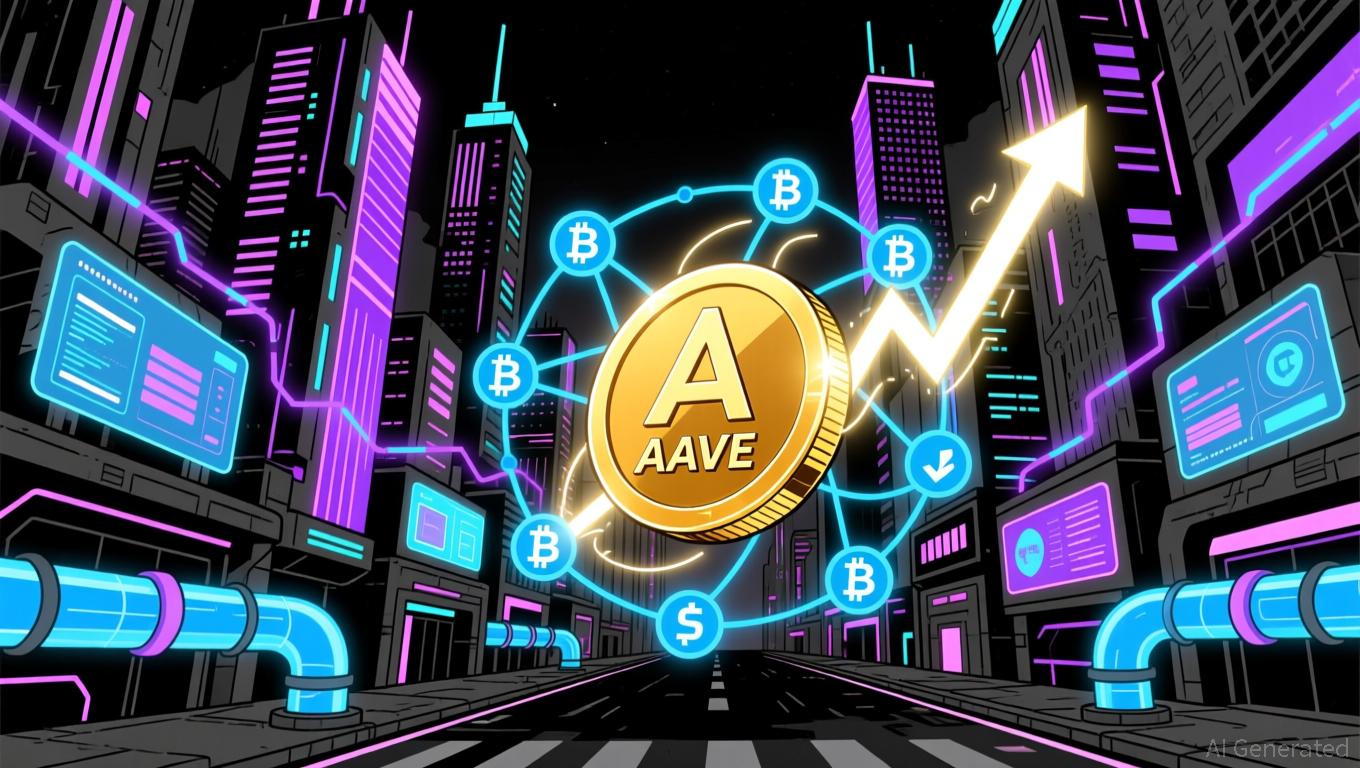South Korea Addresses Crypto Oversight Gap by Broadening Monitoring of Minor Transactions
- South Korea expanded crypto Travel Rule to 1 million won, targeting financial crimes by tracking small transactions previously unmonitored. - VASPs must now share sender/receiver data for low-value transfers, while high-risk exchanges face blocks and shareholder background checks. - The policy aims to prevent illicit activity by closing loopholes but raises concerns about user convenience and compliance costs for exchanges. - Global attention focuses on South Korea's approach as a potential model for bal
South Korea Tightens Oversight on Crypto Transactions
South Korea has advanced its cryptocurrency regulations by extending the scope of the Travel Rule to include transactions as low as 1 million won. This initiative is designed to strengthen the fight against financial crime and improve the monitoring of digital asset transfers.
The Financial Services Commission (FSC) revealed this policy update during the 19th Anti-Money Laundering Day event, marking a decisive shift toward stricter scrutiny of smaller crypto transactions. Previously, such low-value transfers often escaped regulatory attention, providing opportunities for illicit actors to move funds undetected by splitting large sums into smaller amounts.
Key Measures Introduced
- Virtual Asset Service Providers (VASPs) are now required to exchange sender and recipient details for all transactions at or below the 1 million won mark, mirroring the protocols used in conventional banking for wire transfers.
- The government has also enacted policies to restrict dealings with overseas exchanges deemed high-risk and to enforce comprehensive background checks on VASP shareholders. These checks will examine criminal history, financial stability, and social reputation.
These actions form part of a larger effort to curb money laundering, shield investors from unreliable foreign platforms, and uphold the credibility of digital asset service providers.

Implications and Challenges
This regulatory update demonstrates South Korea’s commitment to adapting established financial oversight methods for the digital currency sector. By lowering the reporting threshold, authorities aim to close gaps that could be exploited for illegal activities. However, enforcing these rules on numerous small transactions will require advanced technology and considerable resources. Crypto exchanges must also find ways to comply without overly burdening legitimate users, as critics warn that increased verification could complicate routine transactions.
Looking Ahead
The effectiveness of these reforms will depend on close cooperation between regulators and VASPs, the adoption of sophisticated monitoring systems, and coordination with international partners. South Korea’s approach is attracting worldwide attention, with other countries likely to observe its progress as they consider similar regulatory paths. The Financial Intelligence Unit is set to play a central role in enforcing these standards, maintaining a registry of non-compliant foreign exchanges, and developing strategies for decentralized platforms.
While President Lee Jae-myung has also called for broader diplomatic efforts on the Korean Peninsula, including potential changes to joint military exercises with the United States, the crypto regulation initiative stands out as a distinct and important move. It highlights the government’s dual priorities of ensuring regional security and safeguarding the financial system.
As these new rules take effect, South Korea could become a model for global cryptocurrency regulation, illustrating how traditional anti-money laundering measures can be adapted for the digital age. The country’s assertive strategy underscores the need to balance technological innovation with robust security in the fast-changing world of crypto assets.
Disclaimer: The content of this article solely reflects the author's opinion and does not represent the platform in any capacity. This article is not intended to serve as a reference for making investment decisions.
You may also like
AAVE Rises 1.13% as Weekly Increase Balances Out Monthly Decline During Market Fluctuations
- Aave (AAVE) rose 1.13% in 24 hours, rebounding from a 39.1% annual decline amid crypto market volatility. - The 12.3% weekly gain reflects speculative buying in DeFi, though broader trends show 17.68% monthly losses. - Analysts highlight DeFi's fragility due to regulatory uncertainty and shifting capital flows, despite short-term optimism. - Aave's future depends on innovation, macroeconomic stability, and competition from emerging lending platforms.

Balancer’s $8 Million Compensation Proposal Sheds Light on Weaknesses in DeFi Security Assessments
- Balancer proposes $8M reimbursement plan for liquidity providers impacted by its $128M exploit, marking first concrete response to 2025's largest DeFi breach. - $28M in stolen assets recovered via white hats and third-parties, with StakeWise separately returning $19.7M in osETH/osGNO to users. - Exploit exploited rounding vulnerabilities in Stable Pools, exposing audit limitations as 11 external reviews failed to detect the sophisticated attack. - Reimbursements will be distributed proportionally via BPT
BAT Breaks Away from Altcoin Downturn: Privacy Focus Fuels Rapid Growth Beyond Market Rebound
- BAT surged over 100% since October 11, nearing 2025 highs, driven by Brave's 101M+ monthly active users and 42M daily active users. - Brave's ecosystem expansion (search, AI assistant, wallet) boosted BAT's utility as privacy tool and social rewards mechanism. - BAT outperformed altcoins with 53.4% weekly gain, fueled by user-earned ad rewards and direct creator tipping bypassing traditional networks. - On-chain data shows 72.32% 24h transfer increase, but challenges include privacy browser competition a

Dogecoin News Today: Meme Coins Achieve Recognition as Institutional Investors and ETFs Drive Market Changes for 2025
- WLFI's acquisition of Solana-based meme coin SPSC triggered a 139.8% price surge, highlighting institutional interest in meme tokens. - Binance's listing of Dank Penguin and BNBHolder boosted their market caps past $5 million, showcasing exchange-driven momentum in meme coin ecosystems. - Dogecoin's ETF debut via Bitwise's BWOW and Grayscale's GDOG signals growing institutional validation, despite mixed initial performance compared to Solana/XRP ETFs. - 2025 could solidify meme coins and altcoin ETFs as
